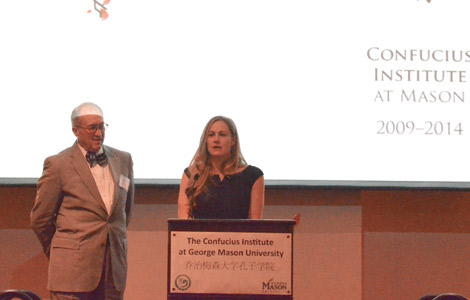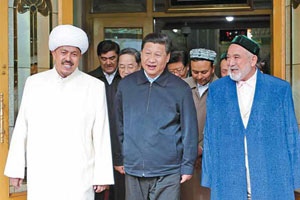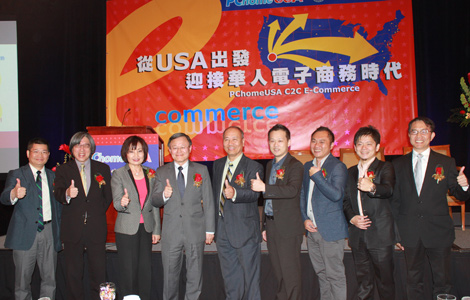Vietnam's claims do not hold water
Updated: 2014-05-09 07:23
By Li Jieyu (China Daily USA)
|
||||||||
In safeguarding its marine rights and interests, China attaches great importance to legitimacy. In dealing with the disputes in the South China Sea, China complies with the United Nations Convention on the Law of the Sea and international norms.
UNCLOS grants coastal states sovereignty over territorial seas and sovereign rights to explore and exploit the natural resources in exclusive economic zones. In 1996, China drew baselines for the Xisha Islands and measured the territorial sea and exclusive economic zones accordingly.
China abides by UNCLOS in exploring and exploiting natural gas and oil resources in the South China Sea, and Vietnam has no right to criticize China's drilling platform that has entered into operation near the Xisha Islands.
As petroleum and natural gas resources are located mainly on the continental shelf, the fishing resources are probably the most important resources in exclusive economic zones, and because of the increasing number of Vietnamese fishermen in China's territorial waters around the Xisha Islands, Hainan province had to issue special regulations to maintain security in 2013.
From the past to now, Vietnam proclaims the marine areas where it is exploiting and exploring for oil and natural gas resources are within its exclusive economic zones, which is groundless and in violation of UNCLOS. In 1992, China authorized Crestone in America to explore and exploit natural resources in Wan-an Bank, however, Vietnam moved a drilling rig there, and sent gunboats and armed fishing vessels to make trouble.
Baselines are starting points to measure territorial sea, exclusive economic zones and continental shelf, and there are three types, among which, straight baselines are one. Where the coastline is deeply indented or there is a fringe of islands in the immediate vicinity of the coast, coastal states may select appropriate base points and connect them to form straight baselines. From the perspective of international practice, offshore islands used as base points should in general be no further than 24 nautical miles from a country's coast. Vietnam has adopted straight baselines using nine offshore islands that are small and isolated, and more seriously, distant from the coast. Five of the aforementioned offshore isles are at a distance more than 50 nautical miles from Vietnam's coast. It is Vietnam not China that is disregarding UNCLOS.
China will remain resolute in safeguarding sovereignty over its South China Sea islands and the adjacent marine areas.
"Land dominates the sea" is what UNCLOS insists on. China enjoys sovereignty over the South China Sea islands and their territorial seas, and sovereign rights over the exclusive economic zones and continental shelf respectively, which was stated by China in the diplomatic note it sent to UN Secretary-General Ban Ki-moon in response to the joint proposition of Vietnam and Malaysia for outer continental shelf boundary delimitation.
In the marine areas around the Nansha Islands, more than 1,000 oil and natural gas wells exist, but none belong to China. Due to the difficulties in logistical supply and technical backwardness, China indeed lags behind in resources exploration and exploitation there.
In the 1960's, the preliminary proof of enriched natural resources on the continental shelf in the East China Sea caught the eyes of Japan, which speeded up its negotiations with the United States for the return of the Okinawa Islands. Ten years later, the same reason encouraged the Philippines to claim sovereignty over Huangyan Island.
In terms of interests and rights protection, action seems to be speaking louder than words. Being the main form of exercising sovereignty, administrative jurisdiction includes migration management and economic activities regulation. And Vietnam itself has taken a series of advancements, legitimate or not.
Oil and natural gas resources are of extreme importance to the economic development and industrialization of China and safeguarding China's interests will bring about actual effects visible to the people.
The author is an assistant professor at the Hainan Provincial Party School.
(China Daily USA 05/09/2014 page15)

 Forum trends: How to bargain in China
Forum trends: How to bargain in China
 Countries mark end of WWII
Countries mark end of WWII
 Mother's Day : Travel with mom
Mother's Day : Travel with mom
 American wrestlers win Times Square event
American wrestlers win Times Square event
 Chinese enrollment for US MBAs is rising
Chinese enrollment for US MBAs is rising
 Confucius Institute marks 5th year at George Mason
Confucius Institute marks 5th year at George Mason
 Chinese artists attend NY philanthropists' event
Chinese artists attend NY philanthropists' event
 Chinese in 'orbit' over lollipops
Chinese in 'orbit' over lollipops
Most Viewed
Editor's Picks

|

|

|

|

|

|
Today's Top News
US museum to return statue to Cambodia
Thai PM faces ban from politics
China tops Global 2000: Forbes
Putin to attend D-Day ceremonies
S. Korea detains head of company in ferry sinking
WHO report says Delhi has worst air pollution
Facebook 'aids' China's exporters
Top US school's offer puts youth into spotlight
US Weekly

|

|








